Chuck Prophet: Night Surfer
By Charles Pitter
26 September 2014
You probably want to know whether Night Surfer is any good, but the usual starting point for any article about Chuck Prophet is to lament the fact he has never hit the big time. It’s easy to bracket Prophet as a cult artist, just like Elliott Murphy, Josh Rouse, or Joe Henry, but that’s a somewhat lazy assertion because this kind of categorisation doesn’t mean much anymore. The implication of course is of unfilled potential, as if somehow the artist should be doing better than they are. While this is usually well-intentioned enthusiasm, it’s also a load of hog-wash. So-called cult artists almost always have a loyal, sometimes rabid, following of fans, an audience that will stick with them through thick or thin beyond the realms of trend. Artists with bigger commercial clout are more likely to be subject to the perilous sway of popular taste, and run the greater risk of suddenly finding themselves dumped unceremoniously at the bottom of the heap, remaindered in the bargain bin.
The other side of this well-meaning name-calling can be a type of elite snobbery, whereby the fan of a “cult” artist just wants to laud it over those who have not yet caught on to what may be the next big thing. When the artist finally breaks through, the super-fan may make accusations of selling-out.
But let’s consider the possibility that not every artist necessarily even wants a big hit. Didn’t somebody once say that money is the root of all evil? These days we should regularly be reminded that it’s no sin to be poor, and that not everyone aspires to own the latest gadget or suburban utility vehicle no matter what the advertisers try to convince us. I’m sure a lot of musicians want to be famous, but a lot of the wiser ones must have realized by now that celebrity is a dead end and probably, most of the time, a bit of a drag.
So yeah, Chuck Prophet may not be über-famous, but Night Surfer is Prophet’s 13th solo album. For the uninitiated, Prophet learnt his chops in the somewhat subterranean Paisley Underground movement, joining Green on Red in 1985 for Gas Food Lodging and successive albums. Green on Red’s music has been described as psychedelic desert rock, a relatively niche category to begin with. After Green on Red’s break-up, Prophet signed as a staff writer for BMG in Nashville, releasing his debut solo album Brother Aldo in 1990. Prophet’s last album was 2012’s Temple Beautiful, a definitively glorious record inspired by all things San Francisco. Prophet spent a few years touring Temple Beautiful non-stop around the world, including some concerts with a string octet, but here he is back again with new material surprisingly quickly for the somewhat cryptically titled Night Surfer.
Temple Beautiful was extraordinarily focused, not far from being a concept album, but ultimately a study in monochrome. After this artistic success, you can almost imagine Prophet scratching his head in the office where he writes (again for this album, often with poet Kurt Lipschutz), considering how to follow up without looking comparatively incohesive. The PR blurb claims Night Surfer is loosely conceptual, and Prophet says it’s “about a path forward, about looking around and imagining where we’ll be in 20 years if we just follow that path. And of course, you’ll find a persistent anxiety throughout; we live, after all, in anxious times.”
Fortunately Night Surfer is not an electro-futuristic nightmare, but a continuation of Prophet’s twangy, jangly, pure-bred rock and roll. The conflicted and tense title of the opener, “Countrified Inner-City Technological Man”, which is a raucous Rolling Stones riff monster, kind of says it all. The band delivers an exciting, conflicted performance, as Prophet rails about surveillance cameras and payday loans.
Night Surfer takes a different approach to Temple Beautiful, but the themes are broadly similar, covering the counter-culture (whatever that is), outlaws, and those on the margins. Prophet has kind of turned into the Godfather of Freak Power, but this time around it’s a more grandiose vision, in full technicolor due to the wider instrumentation. “Wish Me Luck”, based around a nameless real person, has a backdrop of cannabis harvests, marching in parades, and Henry Rollins. “Guilty As a Saint”, which Prophet describes as a “rescue dog of a song”, has more than a dose of pity for those who are not meeting their targets (“sorry I couldn’t be the man I never was”). It starts with an intro reminiscent of ‘70s Eric Clapton, and has a great use of strings, perhaps picked up from his recent touring. Small details enhance the overall tone: Prophet’s over-pronunciation of “connoisseur”, some sonorous clanging bells, the unexpected melodic howling as Prophet bemoans that there are “six million people in the world / and I sleep alone.”
In fact the illusive title of Night Surfer was well chosen. To get up on a wave in the dark and ride a barrel takes instinct and guts, which this record has in lorry-loads. It’s a dangerous business though. “Truth Will Out (Ballad of Melissa & Remy)” is full of fear of the unknown (“tighten up your panties, boy / loosen up your wig”), a story of moral and factual ambiguity, keeping secrets and possible cover-ups, where no one ever mentions the past. Prophet’s tough semi-spoken lyrics inform us that there’ll be no answers, as “no one knows exactly what went down in that room.” The twin guitars emphasize the multiplicity of more than one version of events, but this is how our daily news plays out. In such a climate, the cover of Ezra Furman’s “If I Was a Baby” fits perfectly, with a longing for a return to infancy.
Whilst Night Surfer is an anxious, wired record, you couldn’t call it neurotic, and it doesn’t lack in confidence. The playing is outstanding, with a real sense of the band as a unit, kicking out, having fun. Because of this it’s best listened to through speakers as opposed to solitary headphones. The atmosphere is social, as if your favourite band just happens to be playing in your garage. “They Don’t Know About Me & You” has an anthemic ring to it reminiscent of Tom Petty. “Lonely Desolation” takes unfortunate circumstances and turns them in to a positive, with plucky pizzicato violins and some quirky backing. Prophet shouts that absolution is going to be hard to arrange. Catholics, or Catholicism, seem problematic on more than one song.
Prophet’s singing is the strongest it’s ever been despite a recent throat scare, the charismatic hip vocals well matched for the dark comedy of Night Surfer’s mutant world. There’s some indeterminate dark muttering and a cross-pollinated half-horse/half dog on “Laughing on the Inside” (and elsewhere a dog who’s lost his bark). For the listener what’s important is not what’s being said, but how it’s being said. “Ford Econoline” is also a great vocal performance of a tremendous song. Prophet references listening to Talking Heads as he’s taken on a road trip, not knowing where he’s going. Pop music geeks will immediately recognize which Talking Heads track he’s listening to from the oblique but deliberately placed reference, but the lyrics are positively Dylan-esque (“all the memories like dirty plates/ stacked up in the sink of time”) as Peter Buck’s 12-string guitar pushes the song home. “Felony Glamour” also conjures up some vivid scenes, as Felony goes ballistic in the beauty shop. Party girls and broken poets perhaps, but the song suddenly and unexpectedly fades out, possibly the only minor disappointment that can be found.
Despite the nervous times, musically this is an upbeat record. “Tell Me Anything (Turn to Gold)” seems like the natural single, a catchy empathic jangle “to bring your troubles home to me.” You can easily climb inside this song due to the communal, uplifting spirit of the chorus. “Love Is the Only Thing” is a universal message of hope with a deep glam ‘70s Marc Bolan riff, and it’s a difficult philosophy to argue with when it’s put so determinedly.
In the notes to the album, Prophet considers whether Miley Cyrus should cover one of the songs. Perhaps this would please the converts, make Prophet a pile of dough, and put him front and center on an arena or stadium stage. Ticket prices would double, merchandise sales quadruple. But if Prophet was commodified, over-exposed, commercialized, wouldn’t the essence of this quirky, talented musician be diluted? Night Surfer is as good as it gets and you don’t need much more, if anything at all.
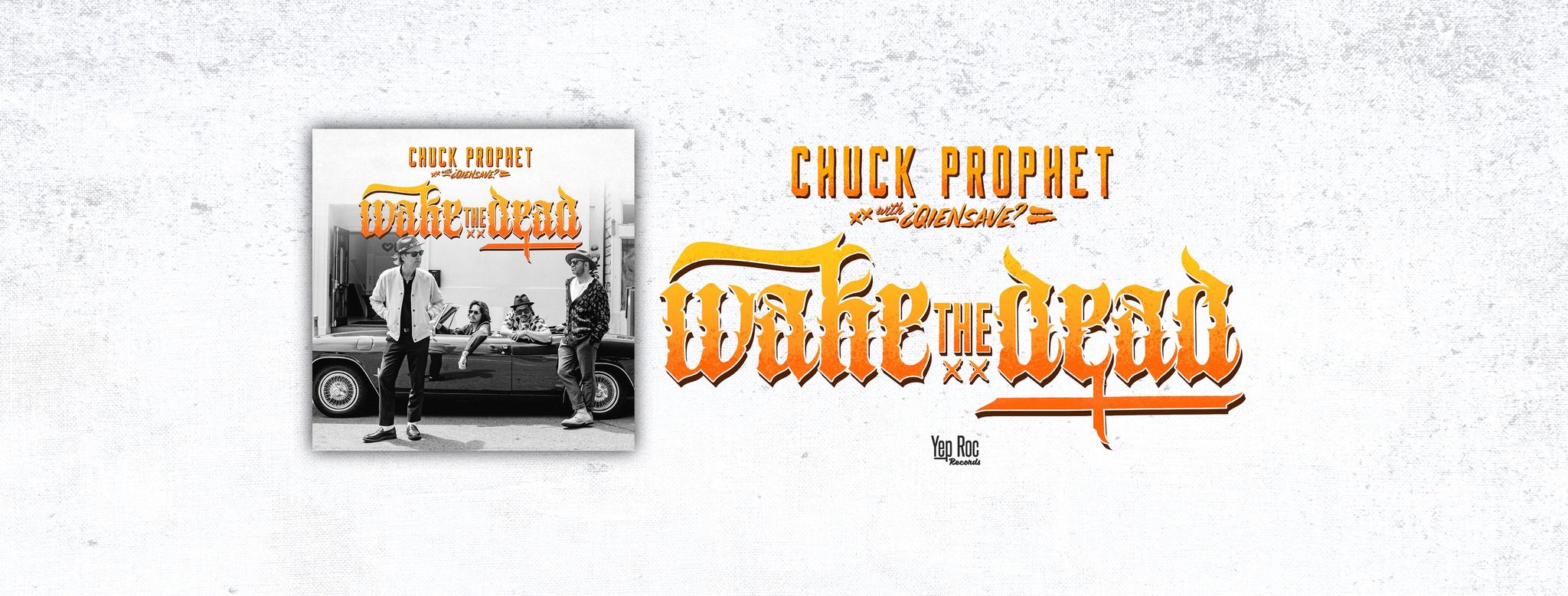

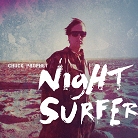
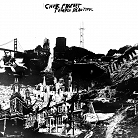

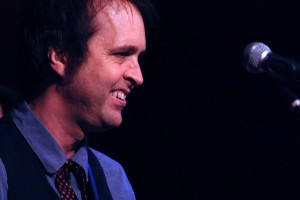








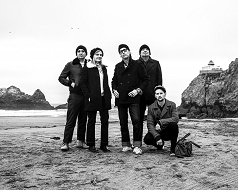
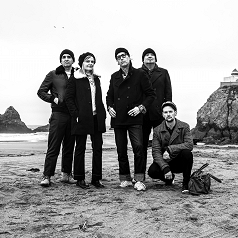
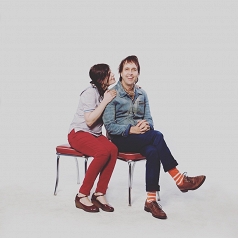
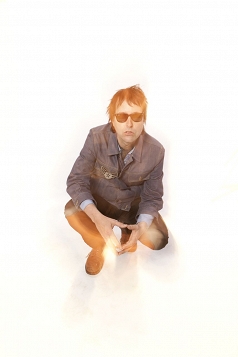

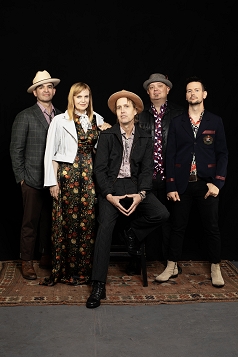
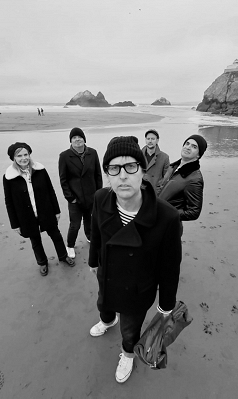
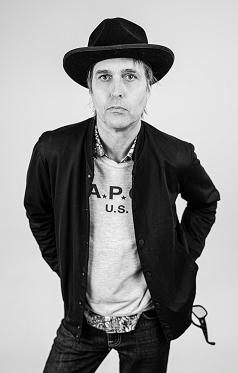
3_238_159auto_s_c1.jpeg)
